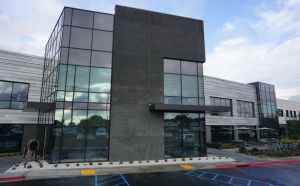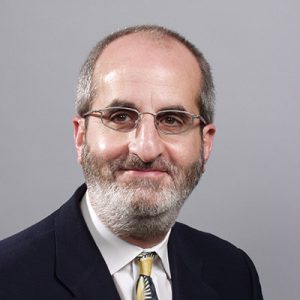
A San Diego manufacturer of highly-modified nucleic acids and its parent company have concluded that development of RNA- and oligonucleotide-based therapeutics—as well as the region’s biopharma cluster—will both grow strongly enough in the near future to justify the companies’ recent $50-million investment in relocation and expansion within the city.
TriLink Biotechnologies and parent Maravai LifeSciences have officially opened their new global headquarters in the city’s Sorrento Mesa section, to which they are moving in phases stretching through the new year.
The new 105,000-square-foot facility is at TEN770, a 183,565-square-foot former office building recently renovated into a life-sciences space by BioScience Properties. The new facility includes 50,000 square feet of manufacturing space with five cGMP suites for TriLink, which specializes in the synthesis of DNA and RNA for research, diagnostics, and therapeutics, as well as customers who rely on Maravai as an original equipment manufacturer (OEM) partner to provide components for advanced research and regulated products.
David Weber, Maravai VP and chief commercial officer, told GEN Edge the expanded facilities will enable TriLink and Maravai to better serve companies and institutions that are developing new nucleic acid therapies, especially those based on messenger RNA (mRNA) and oligonucleotides.
“The demand for both has increased substantially over the last 18 months, while capacity—global capacity, not just within Maravai and TriLink, but in the market as a whole—has been fairly restrained and somewhat stagnant. Demand has far outpaced capacity in the market,” Weber said in an interview. “So, we felt this was a great time for us to invest and expand in San Diego.”
He said TriLink has quintupled its manufacturing capacity, and doubled its manufacturing floor space, in the expanded facility, which has close to 20,000 square feet of R&D and process space.
The city of San Diego marked the official opening last month by declaring the day “mRNA Day.”
Seeing double
In a report released in September 2019, Brand Essence Market Research projected the global mRNA vaccines and therapeutics market will nearly double from $3.39 billion in 2018 to $6.39 billion by 2025. By then, according to Kenneth Research, the oligonucleotide synthesis market is set to more-than-double, to $3.15 billion from $1.28 billion in 2016.
Two factors fueling the growing demand cited by Maravai and TriLink are increased clinical activity and investor interest in the mRNA space. Ingmar Hoerr, PhD, chairman of the supervisory board at CureVac, told GEN there were more than 25 clinical studies of mRNA candidates across numerous modalities.

In 2018, the first two mRNA therapy developers went public — Translate Bio and Moderna — the latter raising $604 million in its IPO. The prospects for mRNA therapeutics were raised when the FDA approved the first small interfering RNA (siRNA) therapeutic, Alnylam Pharmaceuticals’ Onpattro™ (patisiran). At ∼14 kilodaltons (kDa), siRNAs are larger than antisense oligonucleotides (4–10 kDa), but much smaller than mRNAs (300–5,000 kDa).
“All of this activity is fueling not only a lot of startups, but even larger companies, including big pharmas, investing in this space and moving some development projects into early-stage clinical trials. That’s really what stimulated our investment in expanding the TriLink Biotechnologies facility,” Weber said.
TriLink has 175 employees, accounting for more than half of Maravai’s workforce of 313.
“We probably will grow to 180 by the time that we finish the move from the old facility to the new facility in early 2020,” Weber said.
“Miracle” company
TriLink is one of the four portfolio companies of Maravai, which takes its name from the medieval Italian word for “miracle,” and specializes in providing reagents and services to life science researchers and commercial partners ranging from biopharma companies that Maravai won’t disclose, to top-tier research and academic institutions that include University of California, San Diego, Salk Institute for Biological Studies, and Scripps Research Institute.
Privately-held Maravai will only say its revenues are at double digit growth. According to a presentation at the 2019 Jefferies Healthcare Conference, held June 4–7 in New York, Maravai generated $128 million in trailing 12 months (TTM) annual revenue as of April 30.
Maravai was established in 2014, launched with $300 million from private equity firm GTCR, which partnered with Carl Hull and Eric Tardif to form the company. Hull was CEO, and Tardif was SVP, of Gen-Probe, a San Diego molecular diagnostics developer acquired by Hologic for $3.7 billion.

Hull is now Maravai’s CEO, with Tardif serving as president. Maravai began buying its portfolio companies in 2016, with TriLink its second acquisition. Founded in 1996, TriLink develops and manufactures oligonucleotides, mRNA transcripts, nucleotides, bioconjugation, custom chemistry, solutions for PCR & RT-PCR, and NGS library preparation kits.
In October, TriLink launched two new primer sets for its CleanTag® kit. The new Ion Torrent Convert barcode primer sets are designed to enable small RNA library preparation on Thermo Fisher Scientific’s Ion Torrent sequencing platform. This comes several years after TriLink introduced its CleanTag Small RNA Library Prep Kit for use with Illumina sequencers.
Hull lives in San Diego—among the reasons Maravai cited for why it and TriLink have been based in the city, and why the companies are expanding there. San Diego (“America’s Finest City”) is of one of the nation’s leading life sciences regions. San Diego ranks No 5 on GEN’s most recent A-List of “Top 10 U.S. Biopharma Clusters.”
Invisible integration
In addition to TriLink, Maravai’s portfolio of companies includes:
- Vector Laboratories, Maravai’s first acquisition in April 2016, focuses on development and manufacture of labeling and detection reagents for biomedical research. The company’s U.S. headquarters is in Burlingame, CA, with a U.K. location in Peterborough.
- Cygnus Technologies, acquired in October 2016, is a Southport, NC-based assay and services provider for the detection and characterization of impurities in biopharmaeuticals.
- Glen Research, acquired in January 2018, is a Sterling, VA-based provider of reagents used in the synthesis of DNA and RNA.
“We do integration that typically can’t be seen customers,” Weber said. “We put in our common financial and manufacturing system, an ERP [enterprise resource planning] system. We put in common HR practices and systems. We put in common commercial systems and processes, such as those related to marketing and sales. We’re all operating in a similar way, and speaking the same language as we go about our business.”
According to Weber, Maravai has no plans to move the three companies to San Diego.
“We’re always looking at opportunities to gain leverage and get some synergy. But doing so would displace a lot of employees and a lot of expertise. When we acquire these companies, getting the strong employee support and the expertise is critical to that acquisition. That’s something that would be hard to rip up,” Weber said.
“Our philosophy in acquiring companies has been to not tear them apart, but instead to catalyze their growth,” Weber added. Each acquisition has a unique customer base, with minimal overlap. “We felt it important to maintain the character of those companies, the culture of those companies, under a Maravai umbrella, such that the acquisition appears rather transparent to customers, so that they feel secure and continuing to do business and continuing to partner with the four Maravai life sciences companies.”


